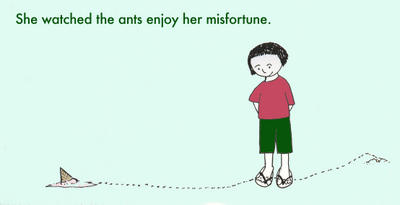There are few statues of state leaders, war heroes, or of any sort of hero in this country.
The
closest we have to this is of
Sir Stamford Raffles, our supposed founder who had first set foot on this sleepy fishing village from his East India Company ship in 1819. Arguably, of course, the most prominent statue we have is not even of a person, much less a hero (but enough angst about
the merlion already).
I think this is because the country's founding leader(s) held strong views against general hero-fication. Perhaps they saw it as reminiscent of more corrupt, less enlightened nations - all this hero business is too romantic and therefore, misguiding. Or perhaps the suspicion was reflective of a deep-rooted anxiety about communism, and communism's attraction to iconic leaders - Lenin, Stalin, Mao...

This afternoon, though child of this island and its system, I surprised myself when I bought the coffeetable book
Ong Teng Cheong: Planner, Politician, Politician, a 2005 project of the
Singapore Heritage Society, co-authored by Tisa Ng & Lily Tan (ok, so there was also the 20% discount
Kinokuniya was offering...). If I had to pick one Singaporean politician/leader from the ruling party I admired, it would have to be the late President Ong Teng Cheong.
One of the most interesting chapters of the book for me was about his years with the
National Trades Union Congress (NTUC). Having once worked in the government department that looked into labour relations, I have heard many stories of Singapore's rather
unique (for want of a better word) labour movement since independence...including the story of that historic strike - extremely rare, if ever at all, in post-independenec Singapore - that was sanctioned by the labour movement in 1986 against an American MNC. The story is told in Chapter 3, quoting an interview with
Asiaweek that Ong gave in 2000 where he said this:
The Minister for Trade and Industry was veryangry, his officers were upset...I said if I were to inform the Cabinet or the government they would probably stop me from going ahead with the strike (p67).
But I take it this was an early indication that the late President would do what is reasonable and responsible, in his professional capacity, even if it was incongruent with the ruling government's position.
He was also someone I respected for his advocacy of the arts and culture in Singapore's national development. No politician in Singapore's history, I think, ever articulated so clearly, intelligently and reasonably the intricacies of the relationship between the arts and the state, culture and nationhood - albeit in the seminal 1989 report of the Advisory Council on Culture and the Arts. No politician
cared and probably, none still cares for culture. But maybe for Ong, I think he had a genuine respect for artists and a genuine love for the arts - not only as trophies for the state on the international stage or as the necessary evil in the global competition to be a "creative city". Chapter 4 suggests that his regard for culture was "as a repository of timeless principles, and a means of communcating these ideas, (hence) it is not surprising that literature and heritage received special attention (p85)". Incidentally, today however, these are two areas most lacking of support and attention. But the same grounded-ness also informed his attitudes on censorship...
Well, biographies are not complete without the personal anecdotes and those private triumphs and sorrows - the stuff that make heroes human. One of my favourite is this somewhat prophetic incident (ah, all heroes need to have a prophecy as a claim to greatness - it is always fate, some greater poetry - never mere prosaic
merit):
In 1960, Teng Cheong won a prize of ₤50 for best all-round results in his 4th year of architecture studies, and a special commendation for a design of Singapore's Istana, which formed part of his thesis (p20).
There you go! Who else but Mdm Fate would have known then that 2 years after Parliament had passed the Elected Presidency in 1991, the young man who had proposed in his undergraduate thesis the design of the Istana would sit in that office himself?
 Photo is taken from p20 of the book.
Photo is taken from p20 of the book.Of course, the book also has its fair share of romance - the late President and his wife were, after all, just as intelligent but far more attractive and seemingly more loving than
the other power couples in Singapore's political history. One of my favourite photographs from the book is of Ong Teng Cheong watching Ling Siew May,his wife (or wife-to-be) in the kitchen.
So if you do need a book to read this National Day holiday that would complement the patriotism and love stirring in your red-and-white/crescent-and-stars heart, this is one book I recommend. The photographs alone are worth it.






